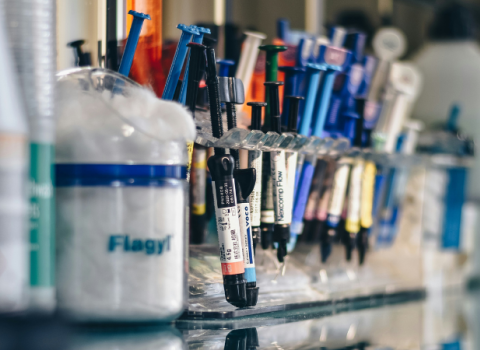Généthon, the French research charity specialising in the development of gene therapy treatments for rare diseases, has signed a collaboration deal with the US biotech company bluebird bio, in which the two will work on process development and scale-up efforts for manufacturing lentiviral vectors.
The agreement is designed to pave the way for substantial advances in existing manufacturing process for the benefit of both partners, strengthening bluebird bio’s manufacturing platform and broadening the company’s capabilities in Europe. Specific terms of the agreement were not disclosed.
“Généthon has strong interest and focus on the development and manufacturing of gene therapy products and is an excellent strategic fit for bluebird bio,” said Nick Leschly, president and chief executive officer of bluebird bio. “Généthon has a distinguished reputation in gene therapy, and over the years has helped identify the genes responsible for hundreds of diseases, developed vectors for gene transfer therapy and established a GMP manufacturing organisation. We look forward to collaborating with the project team on this research and manufacturing project.”
The gene and cell therapy unit at Généthon (Etablissement de thérapie génique et cellulaire (ETGC)) claims to be the first in Europe to have produced HIV-derived lentiviral vectors in accordance with GMP (good manufacturing practice) standards. Since it was founded in 2005 and officially approved in 2006, ETGC has released GMP-compliant batches of a number of different types of gene vector.
Frédéric Revah, chief executive of Généthon, said, “As a non-profit R&D organisation Généthon has the mission of providing patients affected with rare genetic disease access to gene therapy treatments. We believe bluebird bio is at the forefront of one of the most promising advances in gene therapy, and we look forward to being able to combine our expertise with that of bluebird bio and achieve significant improvements in the production of lentiviral vectors for gene therapy through this collaboration.”
bluebird bio’s technology involves using stem cells harvested from the patient’s bone marrow, into which a healthy version of the disease-causing gene is inserted. After being grown in culture, those cells are implanted in the patient. The company has two products in clinical development, one for childhood cerebral adrenoleukodystrophy and another programme LentiGlobin for beta-thalassemia and sickle cell anaemia.
Généthon is a not-for-profit research centre created by the French Muscular Dystrophy Association (AFM) and funded almost exclusively by donations from France’s annual Telethon. Its goal is to develop gene therapies for patients with rare diseases in general, and neuromuscular diseases in particular.





 A unique international forum for public research organisations and companies to connect their external engagement with strategic interests around their R&D system.
A unique international forum for public research organisations and companies to connect their external engagement with strategic interests around their R&D system.